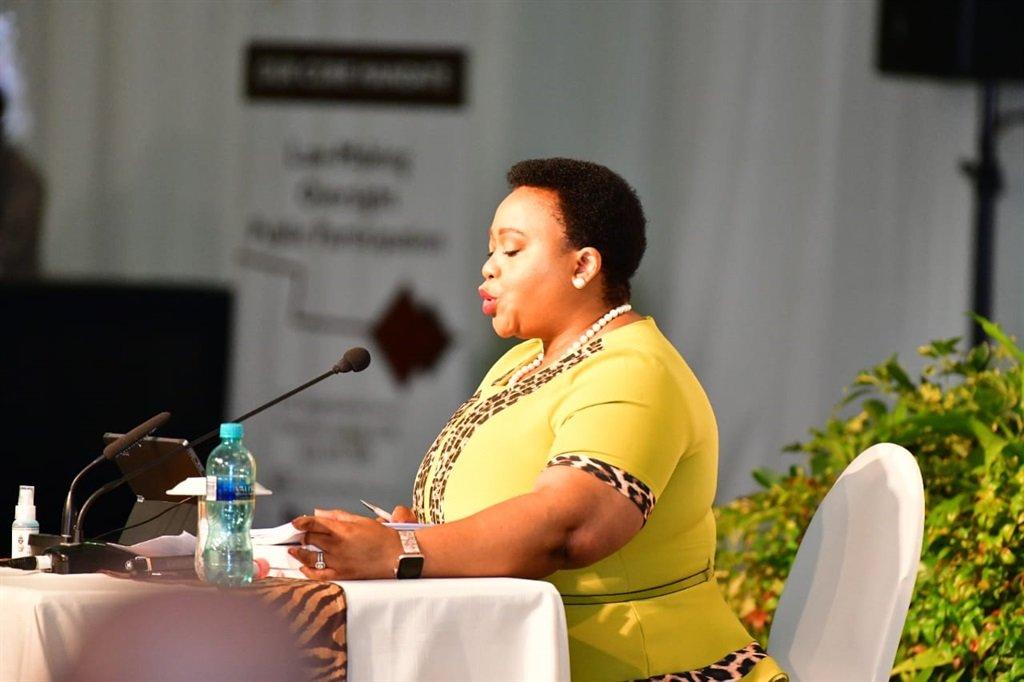Africa-Press – South-Africa. KwaZulu-Natal Finance MEC Nomusa Dube-Ncube is optimistic about the 2022/23 financial year, despite heavy financial blows in the province in the last year.
Delivering her budget speech on Wednesday evening, Dube-Ncube said the economy showed “positive signs of a full recovery” but added that employment remained “unacceptably low”.
According to the MEC, the number of employed people dropped by 5.1% in the third quarter of 2021.
R140 billion budget allocated for KwaZulu-Natal
“Unfortunately, youth unemployment also continued to rise, mainly when measured using the expanded definition, which incorporates discouraged work seekers. As a result, approximately 59.3% of young people aged between 15 and 34 years are unemployed.”
The provincial economy was estimated to have peaked at 4.2% in 2021 while the real output was projected to retreat somewhat to 1.7% in 2022 and 2023, she said.
Medium-term expenditure framework
Dube-Ncube said that globally, there was some recovery after the 2020 Covid-19 pandemic, “the recovery domestically was impacted by the unrest that occurred in July 2021, as well as the high unemployment rate”.
This, she said, resulted in lowered economic growth expectations.
The MEC was, however, positive about improved tax revenues “due to the commodity price cycle”.
She said:
She added: “Domestically, we have higher risks from contingent liabilities from our larger state-owned enterprises (SOEs), and the cost of borrowing is rising, especially the cost of foreign borrowing.”
Allocation of budget
The biggest chunk of the more than R140 billion budget went to education, with R57.5 billion or 40.9% of the total. The main cost driver for this department is the compensation of employees, with an average of 89% of the total equitable share budget going towards this category, Dube-Ncube said.
The department reports that there are 5 807 public ordinary schools with 2 657 055 pupils, 75 public special schools “where the number of learners is yet to be finalised”, and 131 independent schools with 32 153 pupils.
“The budget provides for the upgrade to ICT infrastructure and to purchase IT equipment, such as hardware, and will also upgrade servers and data lines.”
She said the department set a target of resourcing 54 schools with ICT equipment (both primary and high schools). Two software systems are planned to be introduced in 2022/23, namely the e-submission and e-leave management systems.
ALSO READ |
DA: ‘Consider KZN’s finances before building precinct’
“The e-submission system will be used to process all official documents to ensure system efficiency,” Dube-Ncube said.
The second highest allocation was health, with a budget of R49.6 billion or 35.3% of the budget.
“The bulk of the department’s budget allocation is for the delivery of primary health care services to the approximately 87.4% uninsured population of KZN.
She added:
Dube-Ncube said the health department was in the planning phase of upgrading four district hospitals to regional hospitals to assist rural populations in uMkhanyakude, Harry Gwala, Zululand and uMzinyathi Districts.
There are three tertiary hospitals (Greys, King Edward VIII and Ngwelezane Hospitals) and one central hospital in KwaZulu-Natal, the Inkosi Albert Luthuli Central Hospital.
The plan over the medium to long term is to develop both the King Edward VIII and Ngwelezane Hospitals to provide full tertiary hospital services packages, Dube-Ncube said.
“The new Dr Pixley ka Isaka Seme Memorial Hospital (PKISMH) was planned for commissioning in 2021/22. To date, PKISMH is 99% complete with a phased-in implementation process already having commenced in the last few months, with further aspects of the commissioning occurring incrementally going forward. The hospital will have 500 beds and approximately 1 500 staff once fully operational.”
Never miss a story.
Choose from our range of newsletters to get the news you
want delivered straight to your inbox.
For More News And Analysis About South-Africa Follow Africa-Press






